
Introduction to the child care volunteering Project:
Nepal is a country with a rich culture and history. It is a beautiful country, but it faces severe child welfare problems and require child care volunteering. Nepal has an estimated 2 million children who are living in poverty. Many suffer from malnutrition and disease and are not even introduced to primary health education and rights. Due to child welfare problems, the possibility of the development of children is getting hampered. Children who lack primary care are most vulnerable to child abuse, and involvement in crime often prone to drug addiction. This project is an opportunity for you to make a difference in the lives of Nepalese children. Volunteer in this project and help provide basic needs such as food shelter education and medical care for children in needs
Why Choose child care volunteering Project:
First, this project is a very good opportunity to provide guidance and assist child welfare. There are many children in Nepal who are facing malnutrition, fighting disease, and helplessly neglecting their situation. This means there is a great need and hope for volunteers to help provide food, shelter, education, and medical care to these children in Nepal.
Second, this project has the power to make a difference in the lives of children in Nepal. As a volunteer, you will get exposure to new situations and also feel improvement in children’s lives.
Third, this program will also provide an opportunity to learn new skills and gain new experience through practical knowledge. You will also experience child welfare practices, child care, and community development. You will also be able to network with a team of dedicated and experienced volunteers throughout your journey.
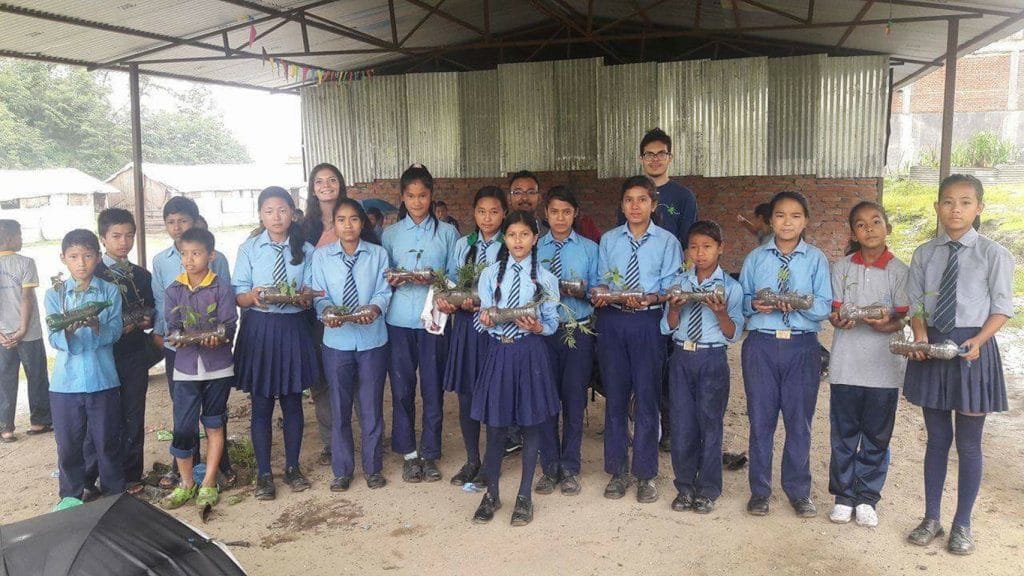
Statistics of Need for child care volunteering:
Some of the statistics that illustrate the need for child welfare importance in Nepal:
- The estimated number of children living in poverty is 2 million.
- The main problem of these children is malnutrition and diseases and are often deprived of education, neglecting the situation
- Most children are most likely to drop out of school due to poverty which leads them in bad influence to be easily involved in crimes and health problems.
What are the goals of a child development program?
Our goal is to ensure the overall development of children and their preparation for primary education.
- To provide quality education to the local children.
- To promote overall well-being and health through the organizing of health care initiatives.
- To create a safe space to provide a nurturing environment.
- To make sustainable and long-term development.
Link of the Project to the Sustainable Development Goals: Our Community-Based Child Care volunteering project in Nepal aligns with various Sustainable Development Goals (SDGs), including:
- Goal 1: No Poverty
- Goal 3: Good Health and Well-being
- Goal 4: Quality Education
- Goal 5: Gender Equality
- Goal 10: Reduced Inequalities
- Goal 11: Sustainable Cities and Communities
What are the goals of a child development program?
Our goal is to ensure the overall development of children and their preparation for primary education.
- To provide quality education to the local children.
- To promote overall well-being and health through the organizing of health care initiatives.
- To create a safe space to provide a nurturing environment.
- To make sustainable and long-term development.
Link of the Project to the Sustainable Development Goals: Our Community-Based Child Care volunteering project in Nepal aligns with various Sustainable Development Goals (SDGs), including:
- Goal 1: No Poverty
- Goal 3: Good Health and Well-being
- Goal 4: Quality Education
- Goal 5: Gender Equality
- Goal 10: Reduced Inequalities
- Goal 11: Sustainable Cities and Communities
What are the goals of a child development program?
Our goal is to ensure the overall development of children and their preparation for primary education.
- To provide quality education to the local children.
- To promote overall well-being and health through the organizing of health care initiatives.
- To create a safe space to provide a nurturing environment.
- To make sustainable and long-term development.
Link of the Project to the Sustainable Development Goals: Our Community-Based Child Care volunteering project in Nepal aligns with various Sustainable Development Goals (SDGs), including:
- Goal 1: No Poverty
- Goal 3: Good Health and Well-being
- Goal 4: Quality Education
- Goal 5: Gender Equality
- Goal 10: Reduced Inequalities
- Goal 11: Sustainable Cities and Communities
Examples of Activities You Will do as a Volunteer for this Project:
- Facilitate and provide instructional aid to kids
- Organize and participate in workshops like fitness and hygiene.
- Assist in academic lesson plans.
- Engage in creative and self-expression activities.
- Collaborate with nearby teachers and work together.
- Giving counseling and mentoring to support children’s welfare
- Organizing health campaigns.
- Conduct awareness about child rights
- Teaching and learning cultural change sports.
- Facilitate workshops on sustainable practices.
- Engaging with communities understanding cultural practices, norms and value.
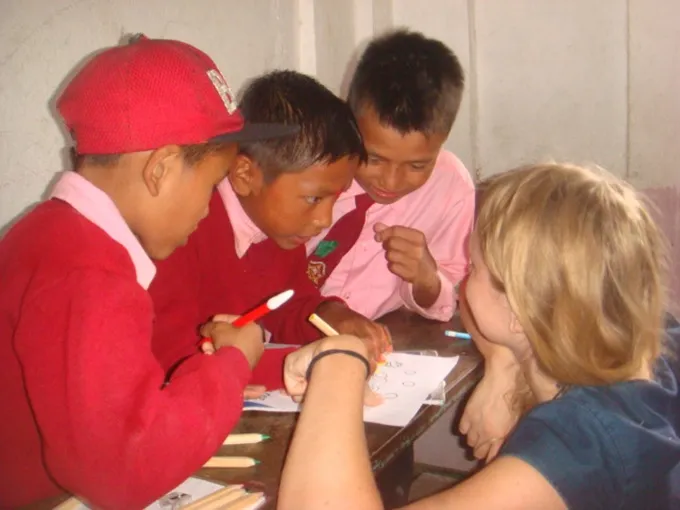
Final Impacts of child care Project on Local Communities in Nepal:
Skills You Will Learn from This Project: By volunteering in our Community-Based Child Care assignment in Nepal, you may increase treasured skills such as:
- Develop communication and teamwork
- Academic guidance to children
- Cross-cultural and cultural exchange
- Program planning and implementation
- Community engagement and empowerment
Relevant Skills, Education, and Requirements:
- Passion for teaching and empowering children and group.
- Good interpersonal skills and conversation capabilities.
- Flexibility and adaptability to paintings in numerous cultural settings and practices
- Basic English language abilities (additional language capabilities are a plus).
- Prior revel in childcare, schooling, or community work is helpful but non-obligatory.
Project Summary:
Join our Community-Based Child mentorship and Care Volunteering project in Nepal to make a positive impact on the lives of children and communities. By joining our program you can empower children to build a brighter future by guiding them on education, health support, and community engagement. Apply now and become part of the most transformative empowerment and community development path with VIN.
Desirable/ Common Skills
- Excellent communicator with good interpersonal skills
- A team player with good workethics
- Time management and leadership qualities
- Adaptable, flexible and able to work under pressure
- Accepting of different ideas and culture
- Problem solving: always be part of solutions than part of a problem
- Creative
- Positive attitude
Requirements
- Gender: Female / Male
- Minimum Age: 18+ years (16-17 years old person can volunteer but need to present parents’/ guardian’s consent letter)
- Language:English (Intermediate)
- Educational:High School Graduate
Your Experience/ Setting
Upon your arrival at Kathmandu Tribhuvan International Airport (TIA), you will receive a warm welcome and be transported to your hotel or hostel. If you are already in Nepal before the start of your placement, we can make alternative arrangements for you. You will undergo a comprehensive two- to three-day induction program after arrival. This induction will provide valuable information about your project and general information about the Nepalese language, culture, health, safety, and security. It is also an excellent opportunity to connect with fellow volunteers and interns who can become your companions for sightseeing and a source of support throughout your volunteer placement.
During the induction period, you will be accommodated in a budget hotel or hostel arranged by VIN. However, most of the VIN experience involves living with a Nepalese host family. While this immersion is essential for a complete experience, we understand that it can be challenging as you adapt to a new culture and adjust to facilities that may be more basic than you are accustomed to. Don’t worry; all our host families have experience accommodating volunteers, although their English-speaking abilities may vary. Also, you will have 24-hour access to our staff members for support and assistance throughout your placement.
Volunteers will be assigned to one of VIN’s working areas, which include Tarakeshor Municipality in Kathmandu, Taluwa, Thulachhap, and Bhadaure in Okhaldhunga, and Okharpouwa and Kaule in the Nuwakot district. While at the working site, volunteers are requested to bring their lunch box, water bottle, safety gear, face mask, and any other essential belongings. We advise volunteers to dress comfortably and modestly, preferably with long sleeves. Please get in touch with us for guidance and support if you want to raise project funds or collect project-specific resources. This will help the community a lot.
Schedule and Commitment
You will work five to six days a week, up to six hours per day. You may propose your preferred time and hours; however, the working time period will be dependent on the institution you have been placed. A minimum of 2 weeks’ time commitment is expected of a volunteer. The longer you commit; the better impact you can make. You should be willing to commit a certain amount of your free time and energy, show a lot of commitment and be a good listener. You are expected to work constructively and co-operatively maintaining good reputation and standards at all times. Volunteer should abide by relevant security concerns and access procedures. Moreover, you should be receptive and positive to performance appraisal, advice and feedback. Throughout your placement, you will have the full support of VIN. Your safety is our highest priority.
Your typical day might look like this:
| 07:00-08:00 | Tea/Leisure Time |
| 08:00-09:00 | Breakfast/Brunch (Nepali meal – Daal-Bhaat) |
| 09:00-10:00 | Preparation for sessions/Travel to venue |
| 10:00-13:00 | Conduct class |
| 13:00-14:00 | Lunch (Packed lunch) |
| 15:00-17:00 | Conduct class |
| 17:00-20:00 | Preparation for next day/Leisure time |
| 20:00-21:00 | Dinner (Nepali meal – Daal-Bhaat) |
You will receive a clear and concise on-the-job instructions, course of action, context of work and policies/strategies before your placement begins. You will be provided with ample of guidance and support throughout the placement with trainings / onboarding sessions incase necessary. You will be in a constant communication and regular check-in with the VIN volunteer coordinator. VIN aims to maintain a culture of continuous feedback between the volunteer supervisor at the placement to monitor the performance of the volunteer and ensure the project delivers desired outcomes.
In case of an emergency, you may contact one of our Volunteer Coordinators who will be available anytime for your assistance and support.
Click here to Learn more on how volunteering works
Mid and Long Term Volunteers:
2 weeks minimum stay- € 380
3 weeks – 480€
4 weeks – 580€ (after 4th week, for each additional week €95)
University Internships:
4 weeks minimum stay- € 680 (for each additional week – €105
Click here to Learn what’s included and excluded in our Fees Section
Click here to Learn recruitment process on how volunteering works
Our projects are open year-round, and our inductions begin on the first and third Mondays of each month. We would like to ask that volunteers arrive one day before the start of the induction. You can choose the duration of your participation based on your available time. However, so that you know, our volunteering placements are limited. We highly recommend booking your placement in advance to secure your placement. Click here to apply.

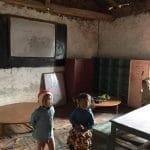
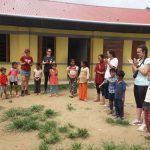
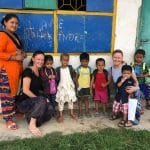
 Member of
Member of